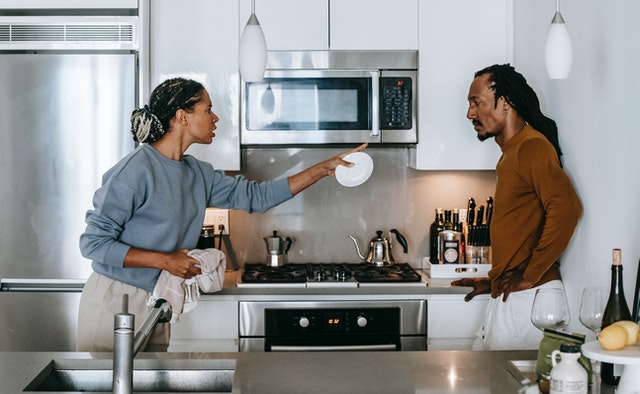One of the major reasons that couples come to counseling is either one or both partners feeling unloved.
Marriage Counselor Shivani says lots of people, specifically those who have been with their partners for a long time and have been doing things the similar way for a while coming for help as they feel their partner never expresses love, appreciation, or affection and, as a result, they do not feel wanted or cared for.
But mostly, the problem is quite much to do with how affection is being expressed as anything else.
Everyone has a different method of showing someone that he/she cares about them. This may be called your ‘love language.
This blog by India’s top Marriage Counselor and Relationship Expert Shivani Misri Sadhoo shares how you can express affection to your special one.
The Common 5 Love Languages
Counselor Shivani says the main ‘love languages’ people often use are:
- Giving Gifts. This may include buying even flowers or chocolates. Physical items intended to please your partner and show you have been thinking about them.
- Carrying Out Kind Acts. This might be something such as cleaning the home for your partner or picking up the shopping. Small (or big!) gestures to make your partner happy.
- Spending Quality Time Together. This may be putting aside a full evening to spend in each other’s company so you can actually reconnect.
- Physical Touch. This might be walking or sitting alone holding hands, giving hugs, receiving a neck or shoulder massage. Sensual gestures to make your partner feel physically closer together.
- Saying Good Things to Each Other. This may include paying compliments such as your hair looks nice’, ‘I really like you in that dress’, ‘you are a really very talented or simple affirmation of how you feel about each other.
Majorly people have just one or two mains ‘love languages’ that they usually speak – through which they express affection and that they mostly appreciate and understand when ‘spoken’ to them.
So, if someone feels that spending quality time with each other is the most natural way of expressing and forming affection may really appreciate it if their partner plans aside an evening for them to go on a date or have dinner. Or somebody who feels close to their partner when being touched physically may really enjoy a light massage at home.
Likewise, one usually has one or two methods of expressing the affection that does not mean all that much to you – probably receiving gifts does not really do it for you, or you can go a little extra without dedicated quality time.
Where Do You Learn Your ‘Love Language’?
How one expresses affection is mostly hugely influenced by what you learnt growing up. If your family liked spending plenty of quality time together, for example, you may value the same things in your partner. If there was an embarrassment at expressing feelings verbally or physically, this could continue into adulthood. But there are no real hard and fast formulas or rules, you may make a choice to do things differently in your adult relationships. In the end, you express affection the way you do because that is what makes the most sense to you.
When You Speak Different Languages
If you and your significant other are speaking different ‘love languages’ without realizing it, that is when there can be room for miscommunication besides dissatisfaction.
You may both end up feeling like the other one doesn’t say or do anything to show they truly care and may end up thinking whether they care at all.
For example, if someone really values kind acts, but their partner’s methods of expressing love are, say, buying gifts, they might feel like they are not having their needs or desires met. Similarly, their partner could feel the bunch of flowers they bought was a really nice gesture of showing they care, but was put out by their spouse’s underwhelmed reaction.
Over time, this sort of miscommunication may really drive a wedge in a relationship. Both partners may begin to feel they are doing all they can, but that it is still not sufficient to make each other happy and content. As a result, they can begin to feel bitter and resentful.
How Can You Address This?
For a relationship to be healthy you both the partners need to understand each other’s needs.
You and your partner probably need to explore how you both feel most comfortable expressing and receiving affection. If you think you may find this conversation difficult, you may like to think about the following:
- Give It Time and Space. Never try to talk when one of you is busy, exhausted, or getting ready to go out. Set aside a time when you will be able to talk uninterrupted. It can also be a wise idea to choose nice, comfortable surroundings, in the living room with a cup of tea, for example.
- Focus on Feelings. You probably like to use lots of ‘I’ while you speak ‘I sometimes feel’, ‘I do not always know how to” instead of ‘you’ language: ‘You mostly make me feel’, ‘You never seem to”. That way, you are taking responsibility for your emotions and your significant other is less likely to feel like they are being blamed for things.
- Start on a Positive. At times, it can help to start by focussing on what you like about the relationship: ‘I love that we can rely on each other for the big stuff, but I was thinking we could talk about some day-to-day stuff. This can get things off to a more positive beginning and help your partner understand you are not simply trying to get at them.
For plenty of couples, discovering that they and their spouse are speaking different love languages is a real lightbulb moment. They could have been feeling poles apart, but suddenly realize they do love each other. It is just that the messages have not been getting through.
How We Can Help
If you think you and your partner could do with seeking help, talking about any of the above, Relationship Counselling at Saarthi Counselling Services can be a great way for having conversations that you may otherwise find difficult.
Your Counselor Is Now Just Skype/Video Call Away
During the current challenging time, it’s common to experience anxiety, depression, sleeplessness, and relationship challenges at home. While you are under lockdown and maintaining social distancing norms to help the country to control COVID-19 spread, your very own counsellor Shivani is now just a call and Skype video call away from you.
However, in this age of coronavirus, we hope to offer our therapeutic help. Change is difficult for all of us and changing the way you meet with your therapist is no exception. But try it before you disregard this option. This is a challenging moment in time, and fears and anxieties are running high.
You may find, telepsychology isn’t a second-rate option. Instead, it’s an effective and efficient upgrade to a valuable service!
Feel free to call Counselor Shivani Misri Sadhoo at +91-8860875040 for telephonic or video support and to book an online counselling session to address any relationship issues, emotional and psychological challenges.



